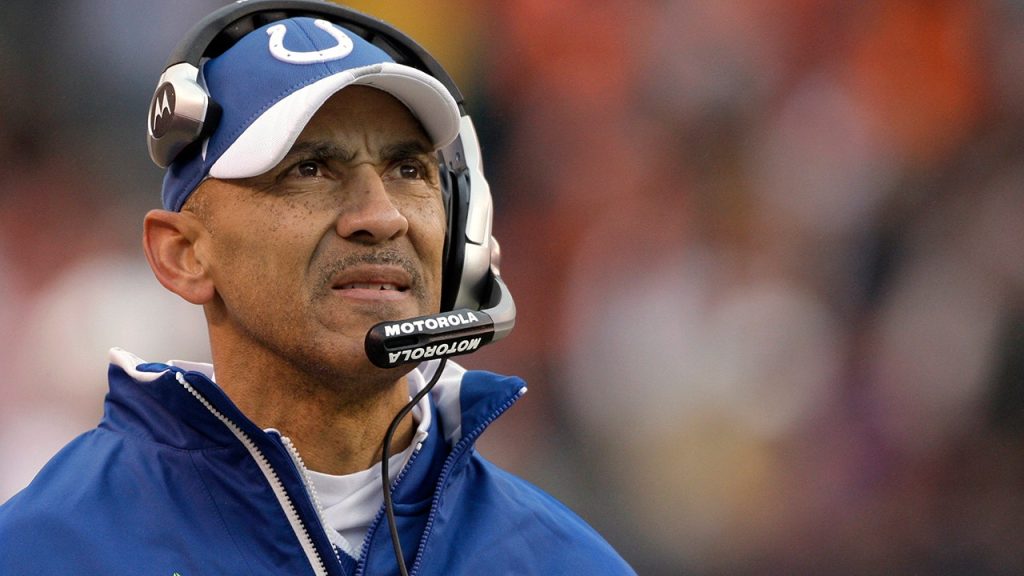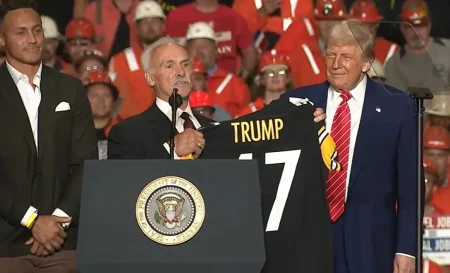The discourse surrounding the prevalence of profanity in NFL locker rooms ignited recently when former Green Bay Packers executive Andrew Brandt challenged head coaches to deliver post-game speeches without resorting to excessive cursing, particularly the ubiquitous “f—ing.” Brandt’s provocation on social media questioned whether such a feat was even possible, highlighting the deeply ingrained nature of strong language within the high-pressure environment of professional football. This prompted a response from Tony Dungy, a Hall of Fame coach known for his composed demeanor and player-centric approach, who asserted that not only was it possible, but he had successfully implemented a curse-free communication style throughout his coaching career.
Dungy’s philosophy stemmed from his initial interactions with both the Tampa Bay Buccaneers and later the Indianapolis Colts, where he directly engaged his players, inquiring whether verbal abuse and profanity were necessary motivators for their performance. The resounding silence in both meetings solidified his conviction that respect and clear communication, devoid of expletives, could be equally effective, if not more so, in fostering a positive and productive team environment. This approach challenged the conventional wisdom that aggressive, profanity-laced coaching was essential for extracting peak performance from players, suggesting a more nuanced and empathetic approach could yield comparable results.
Dungy’s coaching career provides a compelling case study in the effectiveness of his communication strategy. His tenure with the Tampa Bay Buccaneers, spanning six seasons, saw the team achieve a respectable 54-42 record, punctuated by four playoff appearances. This demonstrated that a team could thrive under his leadership without the perceived need for constant berating or harsh language. While the Buccaneers ultimately fell short of a Super Bowl victory during Dungy’s time there, the foundation he laid in terms of team culture and player development undeniably contributed to their future success.
His subsequent move to the Indianapolis Colts further solidified Dungy’s reputation as a master strategist and leader. Over seven seasons, he guided the team, spearheaded by quarterback Peyton Manning, to a dominant 85-27 record. The pinnacle of this era came in the 2006 season when the Colts triumphed in Super Bowl XLI, validating Dungy’s coaching philosophy on the grandest stage. This victory underscored the effectiveness of his approach, demonstrating that a team built on respect, clear communication, and a positive environment could achieve the ultimate prize.
The 2006 Super Bowl victory was not only a testament to Dungy’s coaching prowess but also a significant cultural moment. He became the first African American head coach to win a Super Bowl, a milestone that resonated far beyond the football field. His achievement served as an inspiration to countless aspiring coaches and players, proving that success could be achieved with integrity and without compromising one’s values. Dungy’s legacy extends beyond wins and losses; it embodies a leadership style that prioritizes respect, communication, and the holistic development of players as individuals.
Dungy’s coaching career, culminating in a 139-69 overall record and a Super Bowl championship, stands as a powerful counterpoint to the notion that profanity is an indispensable tool in the coach’s arsenal. His success provides a compelling argument for a more nuanced approach, one that emphasizes clear communication, mutual respect, and a positive team environment. While the use of profanity in coaching remains a topic of debate, Dungy’s example offers a compelling alternative, demonstrating that success can be achieved without resorting to excessive cursing or verbal abuse. His induction into the Pro Football Hall of Fame in 2016 cemented his place among the greatest coaches in NFL history, further validating his unique and impactful coaching philosophy.










